|
Taras Shevchenko (1814 — 1861), Ukraine’s national bard, laid the foundations of Ukrainian literature and had a profound impact on the shaping of Ukrainian national identity. Born a serf, he was bought out of serfdom and then studied at the Academy of the Arts in St. Petersburg, where he emerged as a poet. He styled a lyrical persona after the image of the kobzar, a Ukrainian blind folk bard, prophetic visionary, and vessel of Ukrainian collective memory and ethos. His revolutionary poems attacked the oppressive social order, Russian colonialism, and the imperial family while expressing Ukraine’s strivings for freedom, for which he was imprisoned and exiled to Central Asia.
“THE BONES / OF MANY SOLDIERS LANGUISH THERE. / AND WHAT OF BLOOD, AND WHAT OF TEARS?” Read a New Translation of “The Caucasus” by Ukrainian Poet-Hero Taras Shevchenko
Translator’s note: Shevchenko’s text is structurally complex, written in a combination of distinctive meters, each roughly corresponding to a separate speaker with his own social, linguistic, political and cultural vantage point. The two major meters that alternate throughout are iambic tetrameter (associated with the Russian classical poetic tradition) and the Ukrainian folk meter kolomyika, but the poem’s memorable opening couplet and its repetition, along with a longer transitional passage that introduces the finale, are written in amphibrachic tetrameter. I preserve all of these metrical modulations in my translation, both for aesthetic reasons, and because they are an important clue to identifying the poem’s frequent, sometimes dizzying shifts in voice, attitude, and mood. (Alyssa Dinega Gillespie)
Taras Shevchenko. Rocks. Pencil. 1851 (Тарас Шевченко. Скелі. Олівець. 1851).
Taras Shevchenko, "The Caucasus"
Alyssa Dinega Gillespie is a scholar and translator of Russian literature. She is the author and editor of several scholarly books on the poetry of Alexander Pushkin (1799-1837) and Marina Tsveteva (1892-1941) and the recipient of a 2022 National Endowment for the Arts Translation Fellowship for her book-length collection of Tsvetaeva’s verse in English, forthcoming from Columbia University Press. She began translating from Ukrainian in spring 2022. "I would like to warmly thank Svitlana Melnyk, Senior Lecturer of Ukrainian and Russian at Indiana University, for her wonderful online beginning Ukrainian course in spring 2022, which she offered for free to learners from around the world; for her continuing cultivation of a tight-knit community of Ukrainian learners that has grown out of that course; and for her helpful comments on an earlier draft of my translation. If it were not for Svitlana’s generous instruction, this translation could not have come into existence." (Alyssa Dinega Gillespie)
** Taras Koznarsky is an associate professor at the University of Toronto where he teaches courses in Ukrainian, Russian, and comparative Slavic studies. His research focuses on Ukrainian-Russian literary relationships in the nineteenth century and the text of Kyiv in Ukrainian, Russian, Jewish, and Polish cultural imaginations. His recent publications include articles on Mykola Markevych’s historiography and language choices, on Bely’s Petersburg and urbanism in the modernist novel, and on the case of Beilis as reflected in serialized newspaper novels at the time of the trial (1913). Source: https://lithub.com/a-new-translation-of-the-caucasus-by-taras-shevchenko/
Taras Shevchenko. Peasant yard. Paper, watercolor, 1845. (Тарас Шевченко. Селянське подвір’я. Папір, акварель, 1845).
Original publication:
За матеріалами: Тарас Шевченко. Зібрання творів: У 6 т. — Київ, "Наукова думка", 2003. Том 1: Поезія 1837 - 1847, стор. 343 - 347, 734 - 736.
Please read also:
Recent comments for the page
«Taras Shevchenko’s poem «The Caucasus» (Ukrainian-to-English translation by Alyssa Dinega Gillespie)»:
Refresh comments list
Total amount of comments: 0 + Leave a comment
|
|||||||
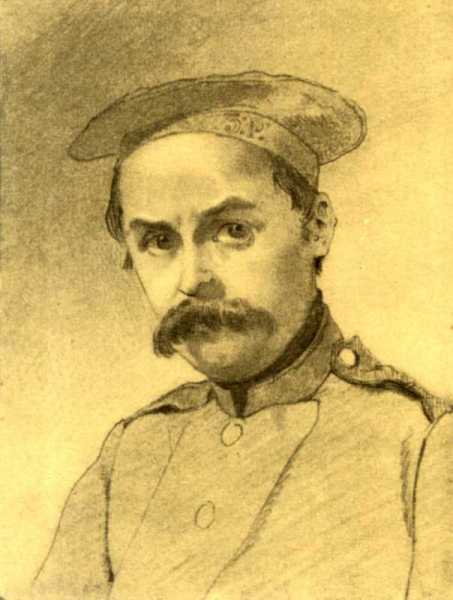
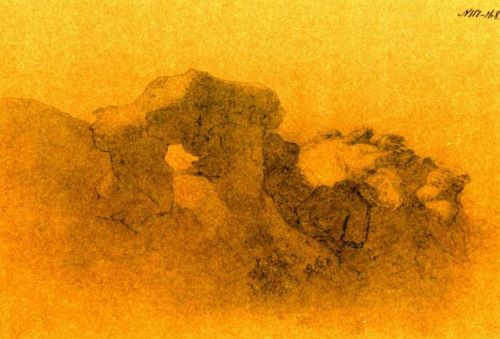
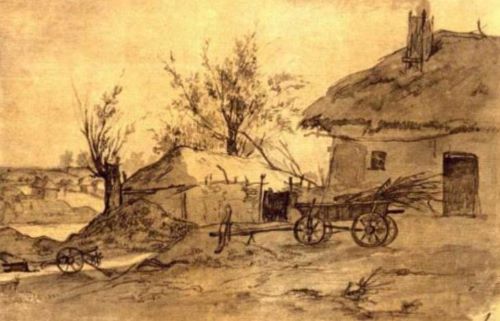
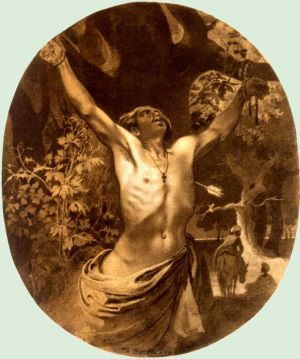

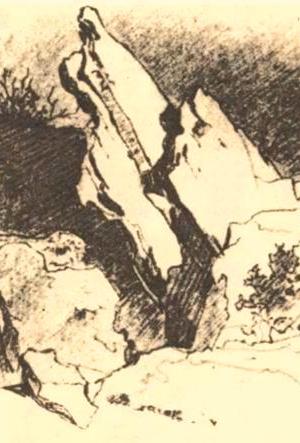 Taras Shevchenko, "The Caucasus"
Taras Shevchenko, "The Caucasus"